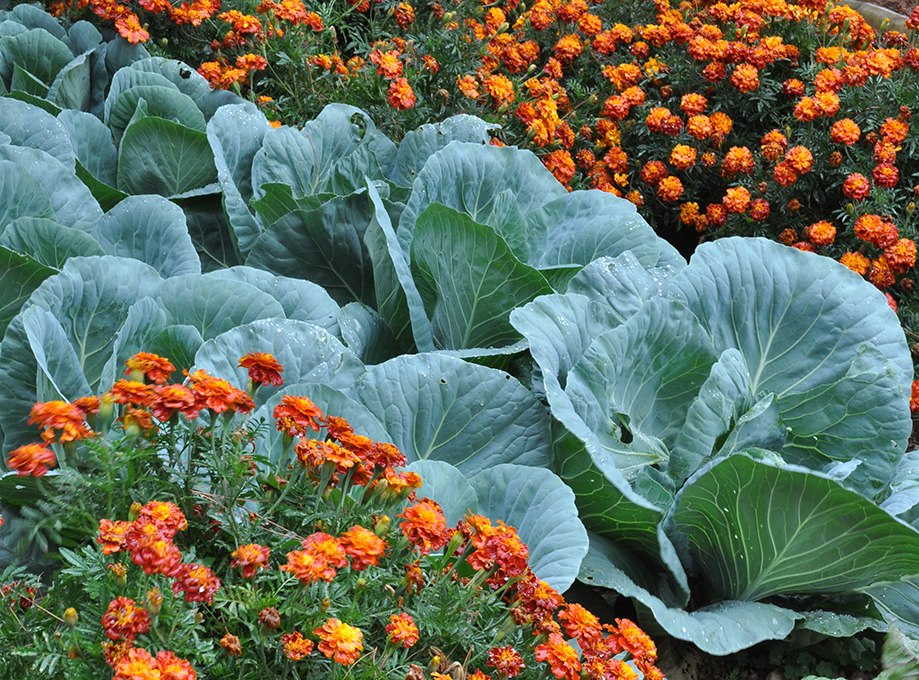Leafy greens like cabbage, spinach, kale, cauliflower and celery are all happy growing together. But planting them with herbs such as rosemary, mint and dill creates a healthier environment and encourages better growth. Other companion plants like marigolds and nasturtiums attract beneficial insects, which in turn prey on pests.
YOU ALSO MIGHT LIKE: Companion planting in the rose garden
COMPANION HERBS

Rosemary repels pests including cabbage flies and moths. It has fragrant leaves and bears pretty mauve flowers, which attract beneficial insects. It’s a versatile herb for the kitchen garden.

Mint There’s a wide variety of flavourful mints to choose from including spearmint, peppermint, apple, ginger pineapple and even chocolate.
KEEP READING: How to grow mint
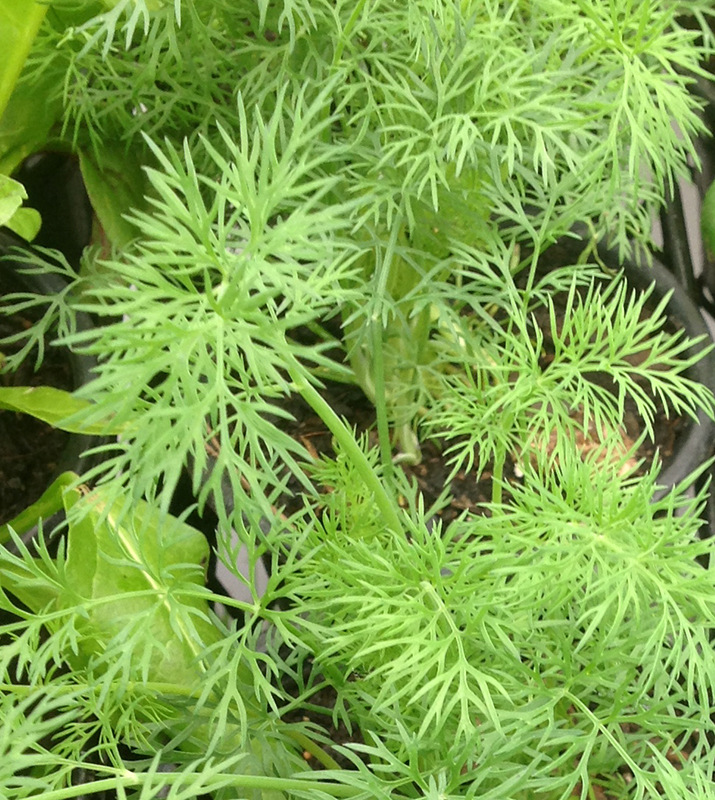
Dill is quick growing and needs lots of sunlight. It’s pretty feathery leaves have an anise flavour.
WINTER VEGETABLES
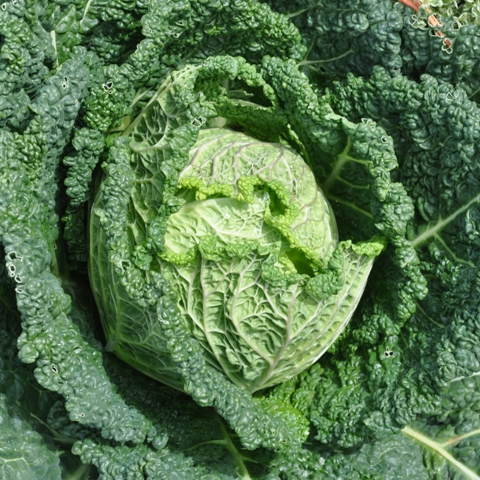
Cabbage comes in a variety of interesting colours and shapes. Place plants at least 30cm apart and harvest them when the head is firm; if they remain in the ground too long, they become bitter.
Kale is particularly prized for its nutritional value. It’s hardy, adaptable and tolerates a little shade.
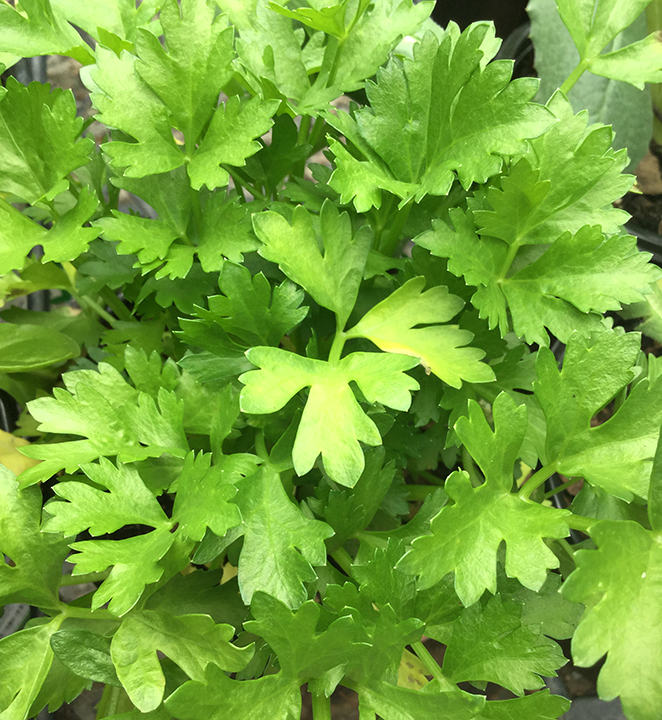
Soup or green celery is easy to grow and requires little space, but doesn’t tolerate very cold temperatures and frost.
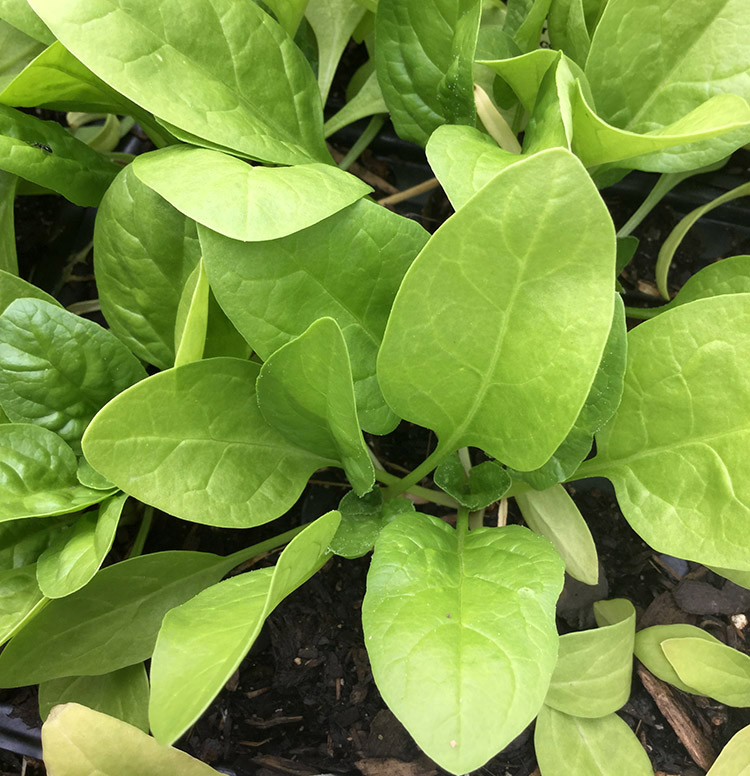
Spinach is a great ‘cut and come again’ vegetable. It’s simple to grow and doesn’t need much space. Try baby spinach which is best eaten uncooked in salad.
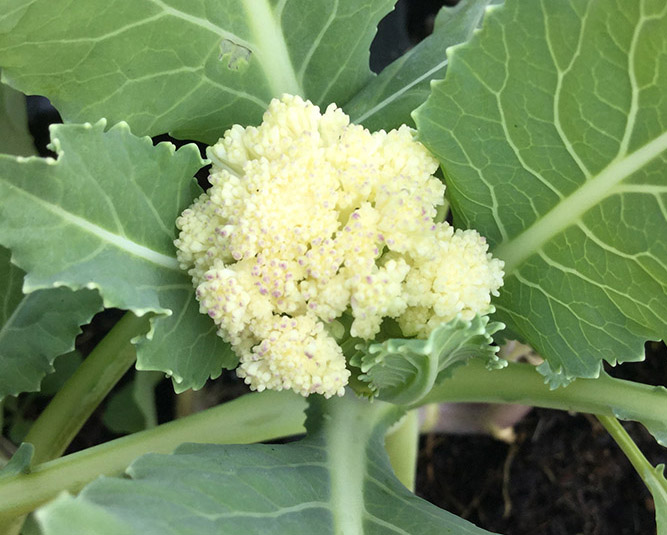
Cauliflower Plant Baby All Seasons Mini Me cauliflower, which has small heads and only needs to be spaced 30cm apart.

Sugar snap peas are sweet and juicy and love lots of sun. Stake them before the plants become too heavy.
GET STARTED
1 Choose a sunny spot whether you’re planting veggies in beds, among other plants or in pots.
2 Prepare the site by getting rid of any weeds and stones.
3 If you’re planting in a new bed, dig down at least 30cm, making sure you break up the soil.
4 Mix in lots of compost and other organic material, such as manure, to make sure it’s well draining.
5 Rake the top, water well and leave overnight to settle.
6 Sow seeds or plant seedlings.
GROWING TIPS
- Keep veggies well-watered.
- Mulch well.
- Brassicas (kale, spinach, cauliflower and cabbage) need a fertiliser high in nitrogen.
- To ensure healthy growth, maintain the best possible conditions. This means, don’t overcrowd plants, fertilise them regularly to build up their immunity to diseases and pests. Remove decaying foliage.
- Remove and control weeds and check for pests – early detection and immediate action is the best solution.
- Try natural eco-friendly pest control methods such as washing aphids off with a hose and handpicking caterpillars and slugs. If you have to resort to a pesticide, use an organic product only when and as directed.

